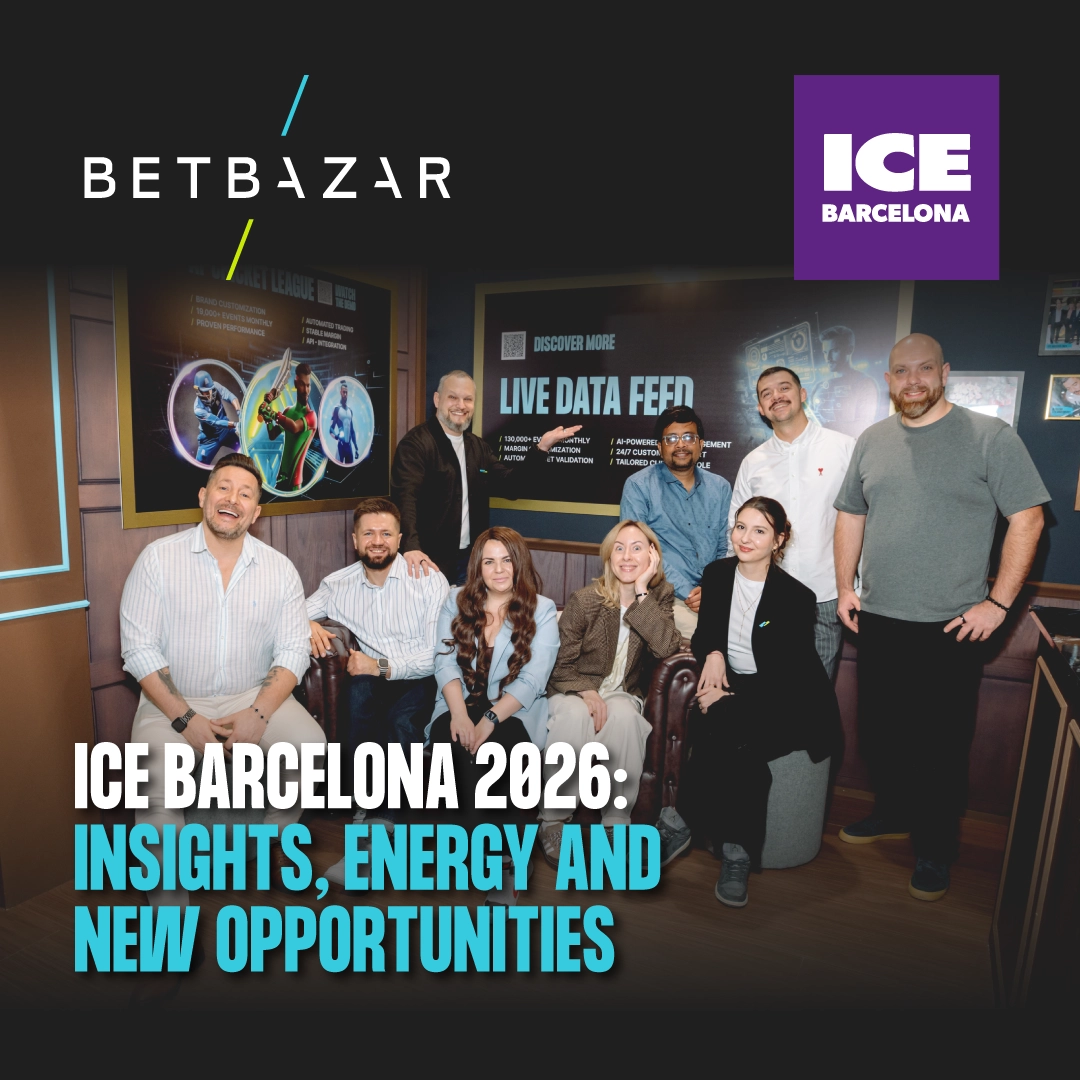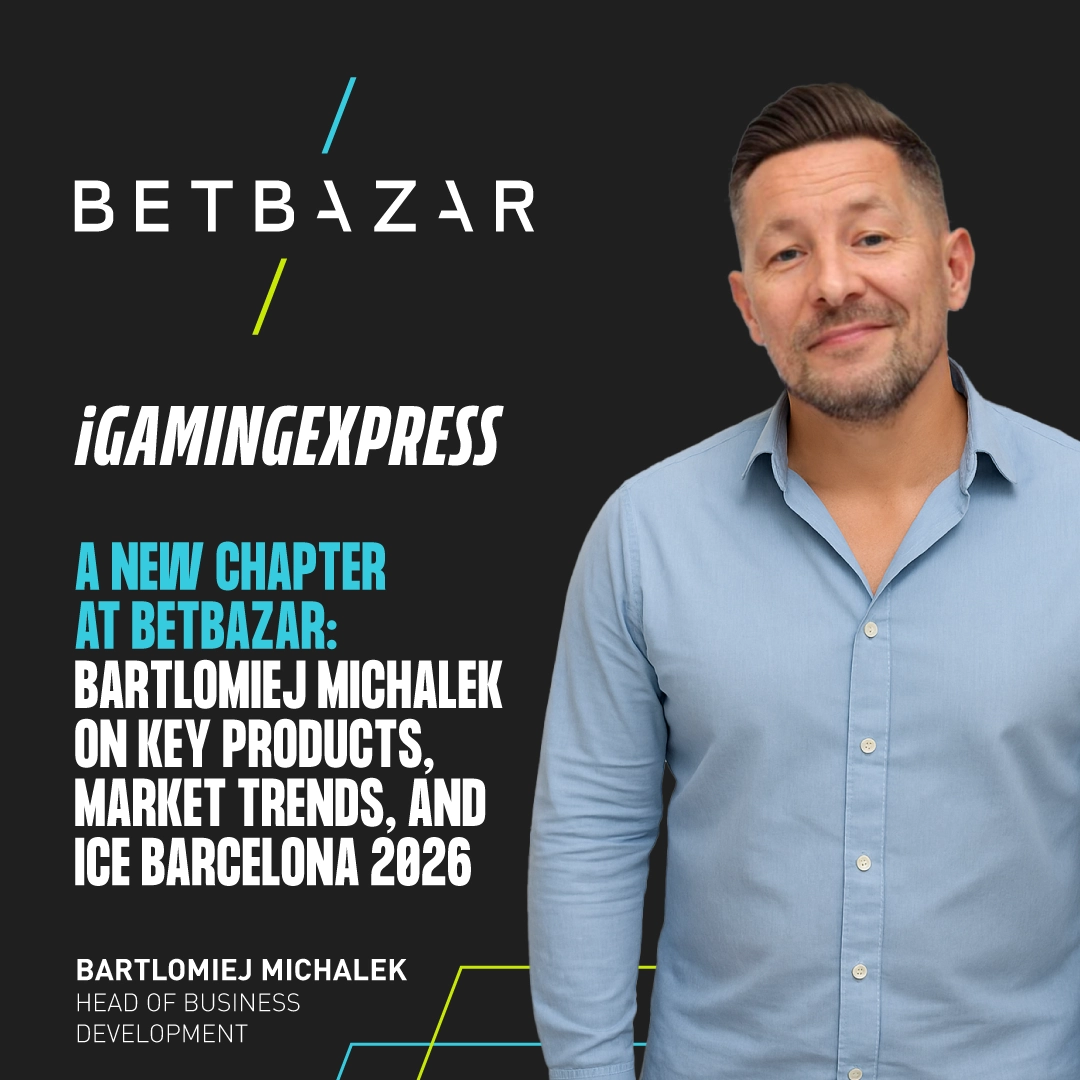
Responsible Gambling in LatAm
G3 Magazine
Navigating The LatAm Landscape
While Latin America has all the ingredients to become iGaming’s next El Dorado, if businesses want to make the most of this golden opportunity, they’ll first need to ensure their responsible gaming protocol and KYC verification is on point. With this in mind, G3 sat down with KYCAID’s Mykola Mashkovskyi and BETBAZAR’s Max Sevostianov to learn more about the challenges facing both operators and regulators in the region and how these can successfully be overcome.
With the Latin American market still being seen as something of a hidden gem among operators, what are currently the biggest challenges facing iGaming businesses who want to launch their product in the region in a way that adheres to all applicable local RG laws?
BETBAZAR (Max Sevostianov, COO Betbazar):
In the LatAm market, operators currently face a complex patchwork of regulations – particularly when it comes to responsible gaming. Compliance differs widely across the region’s various jurisdictions and – on top of that – businesses must also contend with infrastructure limitations such as underdeveloped payment systems and fragmented access to verification services. All of this obviously places an additional burden on operators who, consequently, have to find a way to balance the drive to expand with the need to uphold responsible gaming practice in each market.
KYCAID (Mykola Mashkovskyi, CEO KYCAID):
The Latin American iGaming market offers substantial growth potential, but operators face challenges such as complex payment processing, varying regulatory environments and the risk of money laundering and fraud. Navigating strict financial regulations and having limited access to traditional banking services, along with the diverse stages of online gambling legalisation across the various countries, adds to the complexity of launching compliant products.
Given that the regulatory framework across Latin America varies from country-to-country – and in some cases, even province-to-province – how important is it that operators differentiate their approach to RG enforcement in each individual market they operate in?
BETBAZAR:
This is obviously one of the key considerations in the LatAm market and I think in many respects it’s a similar situation to what we’ve seen in the U.S., where legislation is dictated on a state-by-state basis. In Latin America, what works in one country may not be compliant in another, so operators have to take a more granular approach. In many cases, unique restrictions and compliance requirements are imposed from province to province, so operators must work closely with local regulatory bodies to ensure they follow the correct rules and implement best practices that have been tailored to the specific cultural or legislative environment of each targeted market.
KYCAID:
Due to the varied regulatory landscape across Latin America, iGaming operators need to customise their responsible gaming practices for each market. Non-compliance with local RG laws can lead to penalties, reputational harm or even business closure. Operators must carefully research the specific requirements in each region – including age verification, affordability checks and advertising restrictions – to ensure compliance and protect vulnerable players.
While following relevant RG protocol and offering fast and secure KYC verification are both mandatory aspects of offering online gambling in a regulated market, do you think operators also have a responsibility to educate customers on what they are and why they’re important – particularly in regions like LatAm, where both concepts are still relatively new?
BETBAZAR:
Absolutely. Educating customers on responsible gaming protocol and the importance of KYC verification isn’t only a matter of compliance – it’s also a key factor in building trust in emerging markets like LatAm. As both areas are relatively new concepts to consumers in the region, operators have a duty to make the processes that underpin them as transparent and accessible as possible. By proactively explaining the benefits of these protocols, protecting players from fraud and ensuring fair play, operators can foster a safer online gaming environment for everyone while also helping to mitigate some of the confusion surrounding these mandatory requirements.
KYCAID:
Yes, operators have a responsibility to educate customers on responsible gaming protocols and KYC verification, especially in regions like LatAm where these concepts are still developing. Educating customers not only fosters trust but also helps ensure compliance by encouraging informed participation. Given the unique challenges in the LatAm region, such as varying regulatory environments and limited awareness, clear communication about these processes is essential for both protecting users and maintaining market integrity.
What role do country’s governments have to play during the KYC process in Latin America and how must service providers work with them to streamline it? In Brazil, we’ve already seen that customer IDs need to be verified through the Central Bank and the COAF – do you expect more LatAm countries to have similar systems in place once they regulate?
BETBAZAR:
Governments in Latin America play an increasingly pivotal role in the KYC process, often serving as the key facilitators of data verification through national databases and a central banking system. As we’ve already seen, this model has been successfully put into practice in Brazil, and I expect this will set a precedent that other countries in the region are likely to follow in future. Of course, it’s also important to balance regulation with creating a smooth and user-friendly experience for the customers, so governments themselves have a duty to work closely with operators in order to polish these processes and create a framework that’s beneficial to everyone.
KYCAID:
Every country has to implement KYC regulations in their legislation. There are definitely basic issues that have been tested for years and being able to tackle them is mandatory. In online gambling, these are age and identification verification through documents that have been checked to avoid forgery. If the government provides additional services such as information on lost or expired documents, this can be an additional help. Verifying through the Central Bank is a great way to double-check, but it can become an obstacle if the process is too complicated, so there must be a balance between thorough KYC and the affordability of the process to the user.
As the regulatory landscape across Latin America continues to evolve and more countries begin to legalise online gambling, do you think there are any general lessons the region can learn from other markets where robust KYC processes have already been in place for a number of years? Are there any big areas that LatAm regulators could actually improve on?
BETBAZAR (Max Sevostianov, COO Betbazar):
I believe that one of the main lessons that Latin America could learn – for example – from the European markets is that the adoption of digital ID systems is a great way to streamline the KYC process and reduce fraud. Additionally, regulators should look to simplify the user experience by adopting biometric technologies or automated processes that can verify identity without creating barriers to entry. One area they could improve in comparison to other markets is to create a more uniform regulatory framework across the entire region, as we’ve already seen elsewhere that fragmented legislature can create compliance headaches for operators and slow down growth.
KYCAID (Mykola Mashkovskyi, CEO KYCAID):
Having a lack of ID standardisation – even within one country – poses a challenge in the region. Using digital ID definitely seems to be the future and Brazil is some way ahead in terms of adopting both biometric and digital identity technologies.
Several years ago the majority of the instances of fraud in Brazil came from stolen identities; and with the development of new technology, we can see higher numbers of generated identity fraud and deepfakes. AI-driven technologies like biometric face verification and authentication have been proven to help solve this issue, so I believe greater adoption of them could be key in LatAm.
As an extension of the above, many of the regulated LATAM markets seem willing to adopt modern KYC processes that incorporate newer technologies like AI and biometrics – do you think having what is effectively a “fresh start” when establishing KYC rules gives regulators the chance to introduce a framework that is both more accurate and better streamlined?
BETBAZAR:
With the technology that regulators have available to them today, I think it will be a massive advantage for them to effectively be able to build a new framework from the ground up. As anyone who knows me will tell you, I’m a big believer in AI – and in this case, adopting it from the outset could dramatically improve the KYC processes available across the LatAm region. By combining AI with biometric technologies that are not only connected to the government database, but all databases throughout the region, operators will be able to onboard users really quickly – and making these processes available via mobile will also better support a new generation of players.
KYCAID:
Yes, a "fresh start" allows regulators in LatAm markets to establish KYC frameworks that are both more accurate and better streamlined. By incorporating AI-driven technologies such as ID documents and dynamic liveness verification which can ensure the person claiming the identity is the right, real person and is physically present at the time, these regulations can achieve a high level of security while maintaining user convenience and simplicity. Clear and well-defined rules, combined with advanced technology, create a strong foundation for effective KYC processes.
Betbazar es un ecosistema de entretenimiento global que conecta a los proveedores con sus respectivos operadores y plataformas. Buscamos y validamos productos para las casas de apuestas y trabajamos como oficinas de ventas externas para los proveedores. Nuestra misión es ayudar a cada casa de apuestas a encontrar su producto perfecto.
About the Role
We are looking for a charismatic Business Development Manager with deep experience in the sports or esports industry and strong communication skills. The ideal candidate is proactive and thrives in a fast-paced, data-driven environment.
This is a unique opportunity to join a stable and forward-thinking company where you’ll have access to powerful tools, top industry contacts, and a clear path for growth.
Key Responsibilities
- Identify, approach, and close business deals.
- Leverage your network and CRM systems to drive sales and build long-term client relationships.
- Communicate with decision-makers at top-tier companies.
- Lead negotiations.
- Collaborate closely with internal teams and contribute to strategic growth.
- Maintain accountability for pipeline management and performance tracking.
- Stay up-to-date with industry trends and use data to inform your strategy.
Must-Have Qualifications
- 3+ years of proven success in sports or esports business development or sales.
- Fluent in English (Spanish and/or Portuguese are strong advantages).
- Experience using CRM systems and working with large data sets.
- Strong negotiation and networking skills.
- Contacts within top companies in the industry.
- Excellent communication, time management, and problem-solving skills.
- Analytical mindset with the ability to make data-driven decisions.
- Resilience under pressure and a strong team spirit.
Preferred Qualifications
- Based in Europe
- Experience in a single company for more than 1.5 years
- Motivated by success
- Confident personality with a proactive attitude
What We Offer
- Stable income with the potential for high earnings through bonuses and performance-based rewards.
- Access to powerful CRM platforms, professional tools, and industry databases.
- Subscriptions, resources, and the opportunity to attend global conferences and training.
- Company-sponsored participation in top industry conferences — travel, tickets, and arrangements are handled by us.
- Work with a data-driven company that values innovation and growth.
- Supportive, high-performing team culture with a strong focus on professional development.
Work Conditions
- Full-time
- Remote or hybrid format available
- Contract-based engagement
- Performance-based bonuses
Ready to Join a Winning Team?
If you’re looking for a career-defining opportunity in a thriving sector, with all the tools, contacts, and support you need to succeed — apply now and let’s talk.
- Experiencia mínima de 1 año como gerente de ventas B2B, gerente de desarrollo comercial o similar
- Experiencia comprobada en generación de clientes potenciales, negociaciones e incorporación de nuevos clientes
- Buen conocimiento de los productos de juego, como las apuestas deportivas, las máquinas tragamonedas y el casino en vivo
- Inglés oral y escrito fluido
Será una ventaja:
- Antecedentes de redes personales
- Experiencia en otros mercados verticales de juegos
- Comprensión de los instrumentos de KYC y las herramientas de marketing (incluidas las filiales)
- Idiomas adicionales (DE, ES, CN, GR, PL)
Ofrecemos:
- Sistema competitivo de salarios y bonificaciones
- Posibilidades de autodesarrollo (hablar en público, redacción comercial, club de habla inglesa)
- Entorno acogedor y productivo en el centro de Kiev
- Horarios de oficina flexibles
- Viajes de negocios para exposiciones y conferencias relacionadas con los juegos





